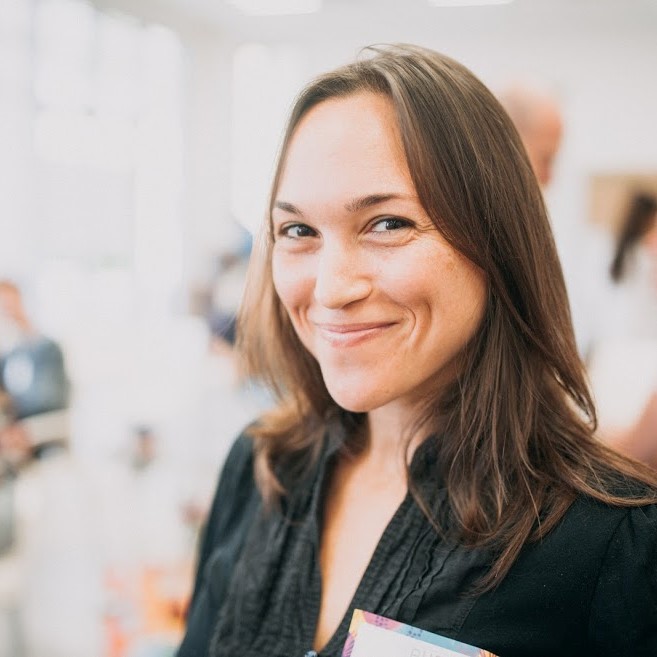Let’s run a short experiment: close your eyes for a few minutes and imagine yourself sitting at the beach with your favorite book. The beach is not too crowded, the weather is just perfect for staying outdoors and the sound of the waves is completely soothing while you’re losing yourself in the story. Oh, did I mention that it is a weekday, and you are experiencing this tranquility right in the middle of your work day?
If you are having a hard time to visualize yourself doing something like that, or you can actually do it — but you are feeling guilty about taking some time off — then know that you are not alone in that feeling. It appears that the majority of us are quite good at committing to do our work, yet at the same time are not doing so well in dedicating time for ourselves, just for the joy of it.
The other day I was sitting with my friend outside of the local community house of events. The context: an organized breakfast and a guest lecture to celebrate international women’s day. While we were sipping our coffee in the sun, waiting for the lecture to start, we noticed that all of the women around us were enjoying themselves just like we did, simply by gathering on a Friday morning, sharing some food and conversations, allowing a concise yet nourishing escape from the routine. It felt like what we really needed is an organized break — a permitted time slot to take care of ourselves, with the simplicity of women friendly environment and some fresh coffee.
What is it that is imbedded in our culture and society, which makes us hesitant before creating a dedicated time to ourselves, feeling slightly guilty about it, or even neglecting it until it becomes rare and uncomfortable? How did we, individuals and social groups, ended up glorifying the state of “Busyness” and apologizing whenever we do make room for self-enjoyment, relaxation and exploration?
During the past 18 months I have been exploring the topic of Burnout that is becoming more prevalent and widespread. Amongst else, I was curious to understand how we drove ourselves to a situation in which we must be available and accessible at any given time, compelled to meet our job demands while our self-wellbeing is being pushed to a lower priority.
One of the biggest realizations I had, following my research that is based on interviews I held with changemakers, social leaders, entrepreneurs and CEOs on top of many stories and articles shared on-line, was that we are caught in the assumption of busier is better. “Busier”, both collectively and individually, interprets as if we are more committed to the cause, which ever that might be: a for-profit business, an NGO, or a volunteering-based project.
We are living in a culture that measures almost everything by numbers — from GDP, through school grades, all the way to public queries of “who makes more money”. Consequently, it is almost inevitable that the mental model of “more is better” translates into: more time being put in work means that we work more effectively and — interestingly noticeable — more intentionally. Tying it back to the issue of time dedicated to our self-wellbeing, it makes sense that we might feel uncomfortable in doing so, because where are the numbers in self-care? How can we measure the outcomes of one hour given directly to our joy, relaxation or exploration, as oppose to one equivalent hour that was given to a business meeting, completing a report or sealing a deal?

Without going into the discussion of how can we measure the effectiveness of self-dedicated time (those measurements are qualitative and are currently being employed by organizations and institutions which focus on holistic health care and social and personal wellbeing, just to give a few examples), we can still pin down the importance of practicing self-dedicated time. I deliberately choose to title those as practices, since I believe that implementation of those actions into our routines requires a continues and consistent practice. To name some of the main benefits of such a practice:
- More focus and clarity which leads to making wiser decisions
- Better ability to putting boundaries and guarding ourselves from overload of job related tasks
- Healthier way of living daily life by incorporating contemplative practices, such as walking, journaling, stillness, movement, and building relationships
- Better managing of stress and avoiding burning out
- More self-respect and tuning into our own needs — which results in a more joyful and fulfilling way of living
Having said all the above, I can imagine that this information is quite known by many people and it is no secret that self-dedicated time is beneficial in many aspects. Why is it then that I decided to bring it up again?
First, because obviously if so many of us suffer from being over-busy — then this list (or similar lists) still serves as an important reminder. Second, is to highlight what needs to be the opening line of such a list:
We should never feel guilty about taking the time we need to nourish ourselves and meeting our own needs.
Being careful with generalizations, I always try to avoid the statement “we should”. But this time, given all the conversations I held with leaders and changemakers from all over the world, I feel safe enough to state “we should” with relates to self-care and be confident about its necessity.
Everywhere I go, I see people who work hard and play so little; people who are committed to do their job and not equally committed to do the inner work (read: self-exploration); people who will be punctual and perfectly organized with their business schedule yet will easily bail out of a social meeting. I hear them, I understand it, I see the complexity in keeping up with the work load in a world of information abundance and meeting high performance expectations. But it does not mean that that is the right, healthy or even effective way to go, and that we should comply with these demands and expectations.
“There’s only one corner of the universe you can be certain of improving, and that’s your own self.”
-Aldous Huxley
I wrote previously about the phenomenon of busyness and how we turned it into a sacred routine and a prevailing way of measuring success. Currently, I want to focus on one practical suggestion — a call for action that we can all start taking as of now:
Be more intentional about your use of time and how you choose to allocate it.
Some will say that they don’t get to determine how to allocate their time -especially during work hours; I think that this is only partially true. I should know, because I used to believe in that too, until I realized that I was taking the easy way out instead of taking responsibility for my own use time.
Whether you are a hired worker, self-employed, a student, a volunteer or un-employed — you most likely can make two important decisions: how to spend your time outside of work and where to draw your limits and boundaries with regards to work hours. Every minute that is being utilized to nurturing ourselves instead of feeling guilty about “wasting our time” — serves a key for cultivating motivation, positive energies, creativity and passion.
It is common to fall into the trap of keeping yourself busy in order to achieve more, but eventually you might reach the opposite outcome, since your resources are depleted and you didn’t leave room for much needed rejuvenation. Being aware of this trap and consciously taking a self-dedicated time, is a decision to be pro-active rather than reactive.
This is a call for action to start believing that we deserve the self-dedicated time, and we are entitled to fulfill our needs through joy, relaxation and exploration. This is an invitation to being active in creating that much needed time — instead of waiting for someone else’s permission to do so.
Interested to read more articles by Davida Ginter about accelerating change and social impact driven leadership? Please visit Be the Change
Originally published at medium.com


